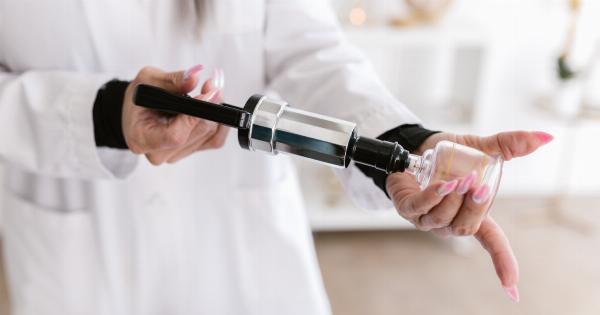Meningeal pain, also known as meningitis, is a condition that affects the protective membranes surrounding the brain and spinal cord. It is often characterized by intense headaches, fever, and neck stiffness.
Meningeal pain can be caused by viral or bacterial infections, as well as other factors such as tumors or traumatic injuries. In this article, we will explore the symptoms and treatment options for meningeal pain.
Symptoms of Meningeal Pain
The symptoms of meningeal pain can vary depending on the underlying cause, but the most common signs include:.
- Severe headache: The headache associated with meningeal pain is often described as throbbing and intense. It is usually worsened by movement or light.
- Fever: Many individuals with meningeal pain experience high body temperatures, often reaching above 100.4°F (38°C).
- Neck stiffness: Stiffness in the neck and difficulty bending it forward is a typical symptom of meningeal pain.
- Nausea and vomiting: These symptoms can occur due to the severe headache and increased pressure on the brain.
- Sensitivity to light and sound: Meningeal pain can make individuals extremely sensitive to light, resulting in discomfort when exposed to bright lights or sunlight. Sound sensitivity is also common.
- Confusion or altered consciousness: In severe cases, meningeal pain can cause confusion, irritability, and even loss of consciousness.
Types of Meningeal Pain
Meningeal pain can be classified into several types, depending on the causative factors and other considerations:.
1. Viral Meningitis
Viral meningitis is the most common form of meningeal pain and is usually caused by various viruses, including enteroviruses, herpes simplex virus, and influenza virus.
This type of meningitis is generally milder than bacterial meningitis and often resolves on its own within a few weeks, without the need for specific treatment.
2. Bacterial Meningitis
Bacterial meningitis is a severe and potentially life-threatening form of meningeal pain caused by bacteria such as Streptococcus pneumoniae, Neisseria meningitidis, or Haemophilus influenzae.
It requires immediate medical attention and treatment with antibiotics to prevent complications.
3. Fungal Meningitis
Fungal meningitis is a rare form of meningeal pain caused by fungal infections. It typically occurs in individuals with weakened immune systems, such as those with HIV/AIDS or receiving immunosuppressive therapies.
Fungal meningitis is treated with antifungal medications, which may need to be administered for an extended period.
4. Non-Infectious Meningitis
Non-infectious meningitis refers to meningeal pain that is not caused by an infection but rather by other factors like allergies, medications, autoimmune diseases, or certain cancers.
This type of meningitis is generally treated by addressing the underlying cause.
Diagnosis of Meningeal Pain
Diagnosing meningeal pain involves a combination of medical history assessment, physical examination, and diagnostic tests such as:.
- Lumbar puncture (spinal tap): This procedure involves collecting a sample of cerebrospinal fluid (CSF) from the spinal canal to analyze for signs of infection or inflammation.
- Blood tests: Blood samples may be taken to evaluate white blood cell count, identify the presence of bacteria or viruses, and assess other markers of infection.
- Imaging tests: Imaging techniques like CT scans or MRIs may be used to examine the brain and spinal cord, helping to identify any abnormalities or potential causes of meningeal pain.
- Other tests: Depending on the suspected cause, additional tests such as cultures, polymerase chain reaction (PCR), or antibody tests may be performed.
Treatment Options for Meningeal Pain
The treatment of meningeal pain depends on the underlying cause and the severity of the condition. Here are some common treatment options:.
1. Antibiotics or Antiviral Medications
If the cause of meningeal pain is determined to be bacterial or viral infection, doctors will prescribe appropriate antibiotics or antiviral medications to eliminate the infection.
2. Pain Relief Medications
Over-the-counter pain relievers, such as acetaminophen or ibuprofen, can help reduce fever, alleviate headaches, and ease general discomfort associated with meningeal pain. However, consult a healthcare professional before taking any medication.
3. Hospitalization and Supportive Care
In severe cases, hospitalization may be necessary to closely monitor and provide supportive care to individuals with meningeal pain. This may involve hydration, pain management, and close observation for any complications.
4. Antifungal Medications
If the cause of the meningeal pain is fungal infection, antifungal medications will be prescribed to treat the underlying fungal infection.
5. Management of Underlying Conditions
If meningeal pain is caused by non-infectious factors such as autoimmune diseases or cancers, the primary focus of treatment will be to manage those conditions effectively, often with the help of specialized healthcare providers.
Prevention of Meningeal Pain
While not all cases of meningeal pain can be prevented, there are several measures individuals can take to reduce their risk:.






























